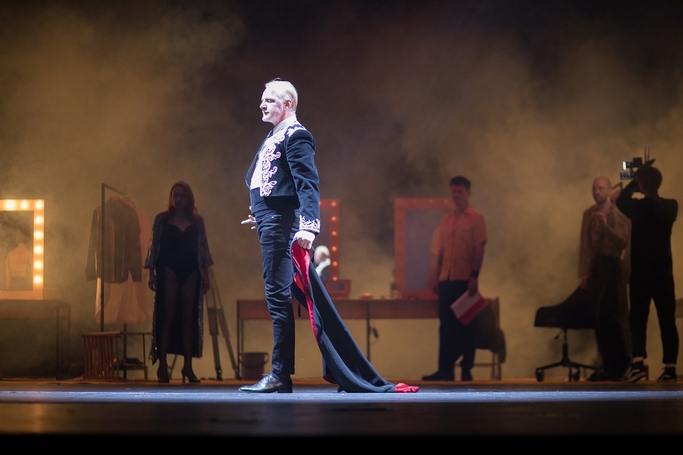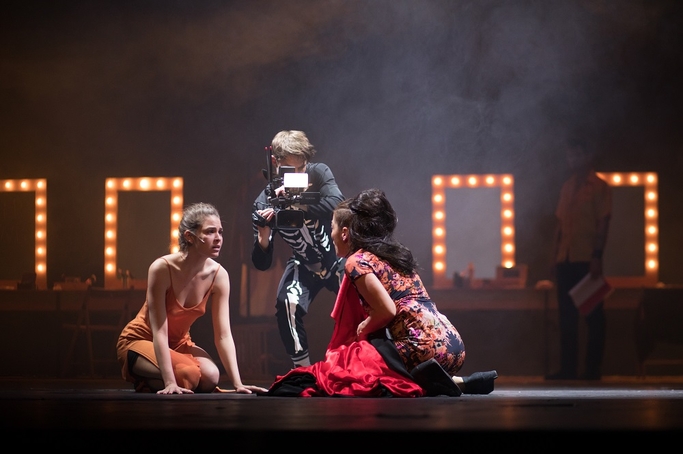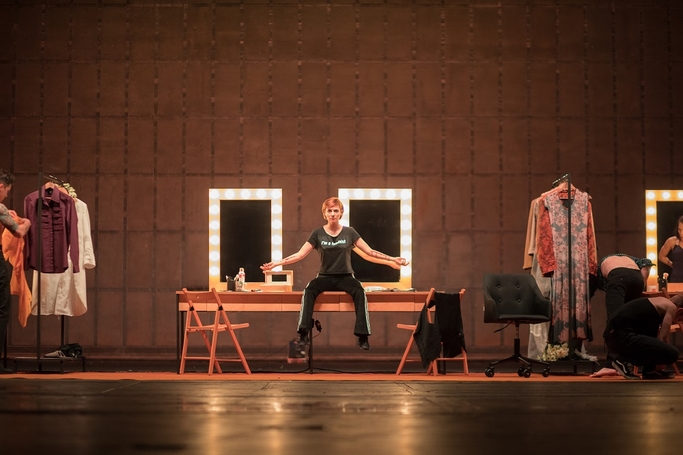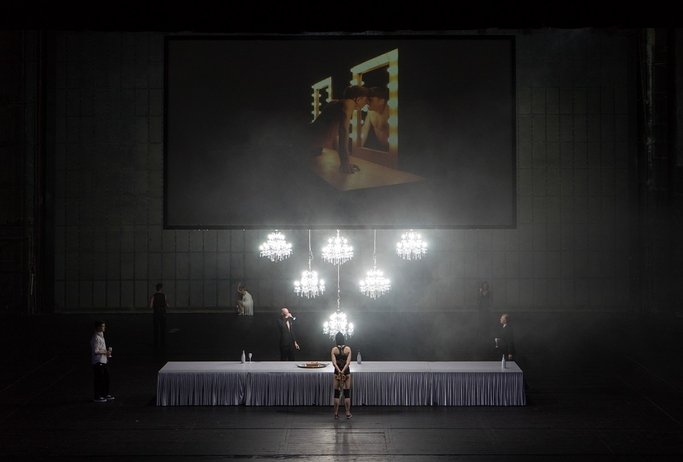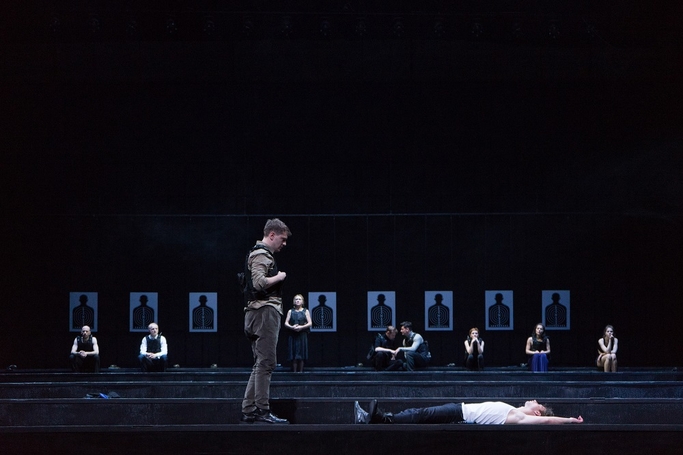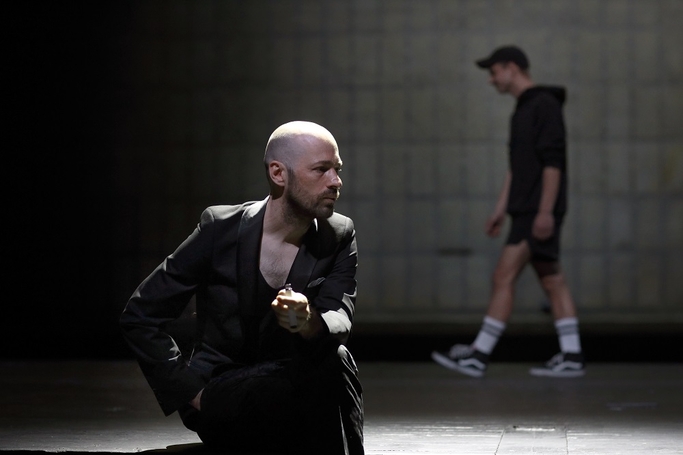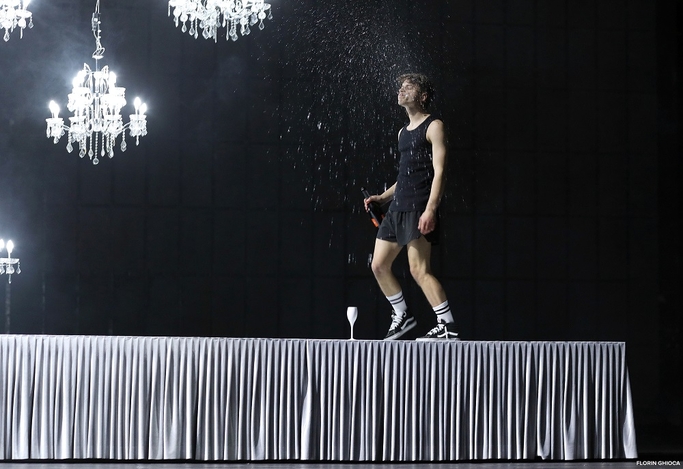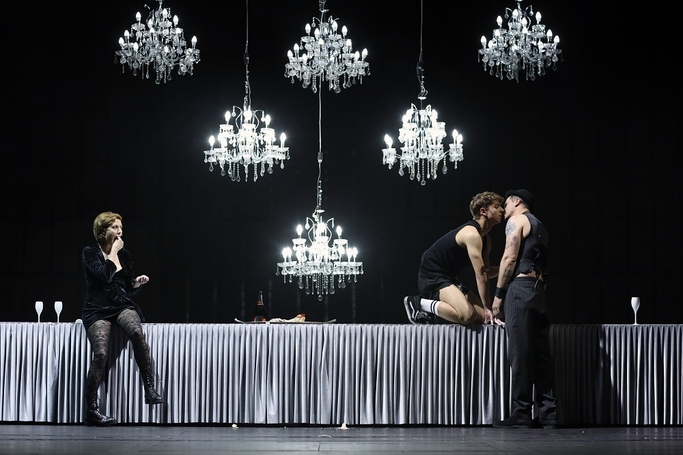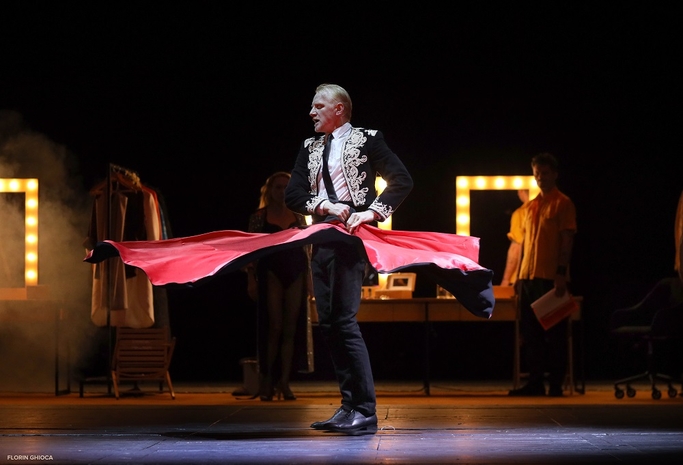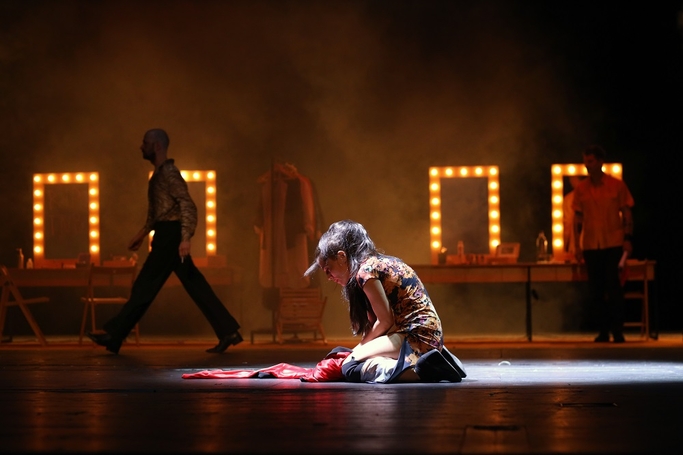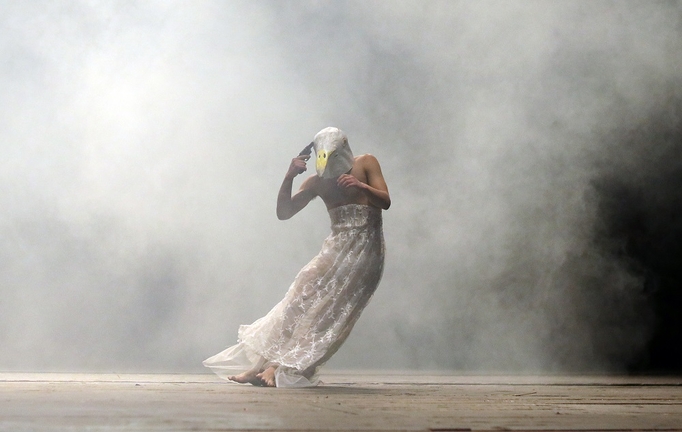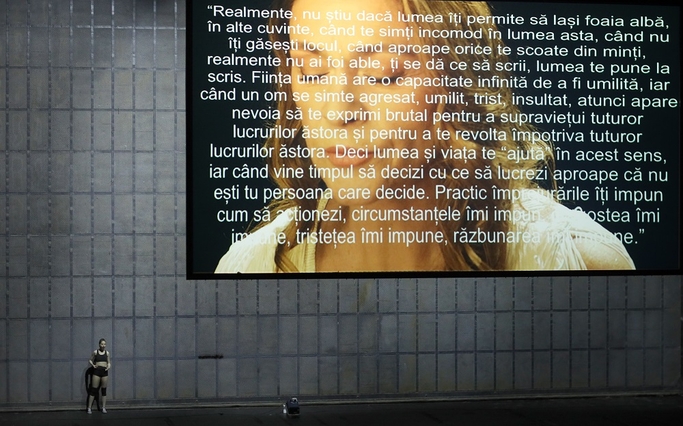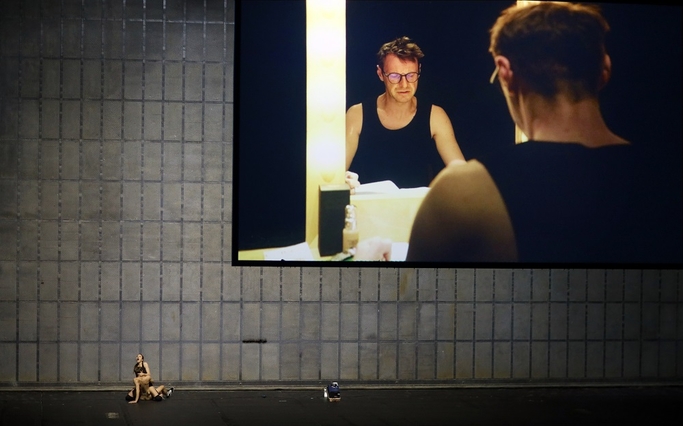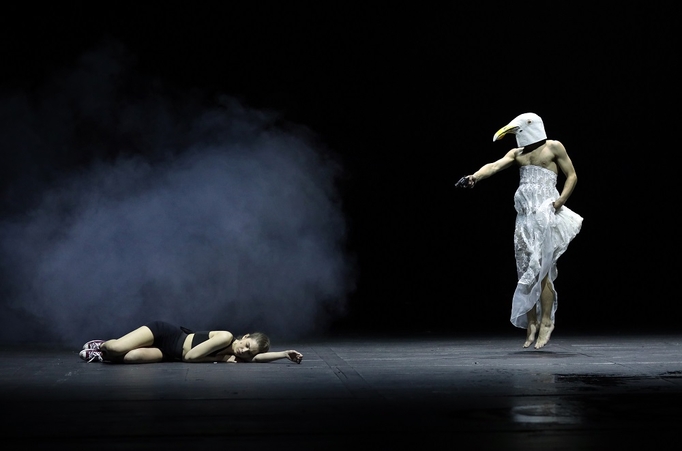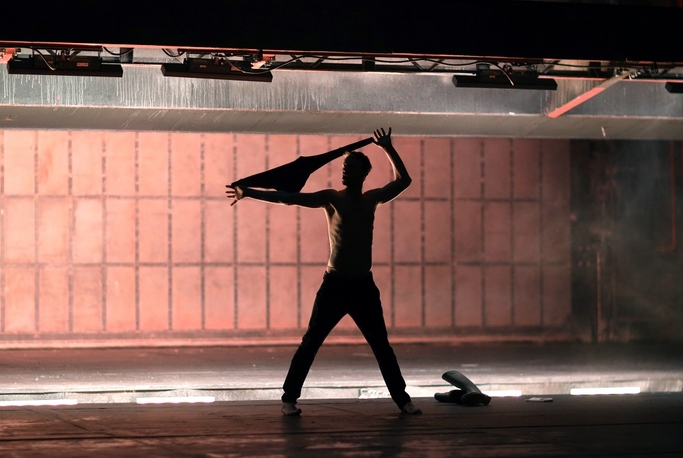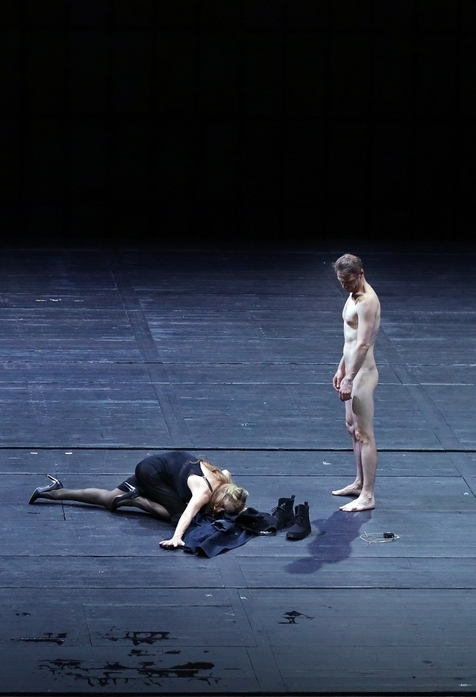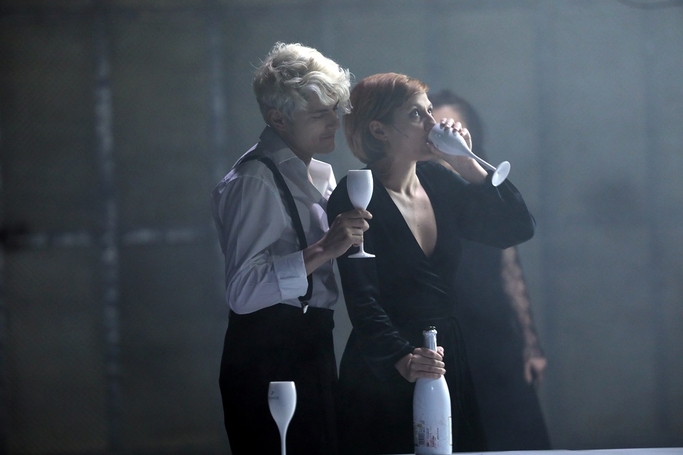Current Repertory
The Seagull
by A.P. Cehov
The Seagull
by A.P. Cehov
Premiere: 14.05.2022
Duration: 2 h 40 min / Pause: No
A show not recommended for children under the age of 18: scenes that can affect them emotionally, scenes with sexual connotations and nudity.
It takes a certain amount of courage to come with a new performance of “The Seagull” by A.P. Chekhov after so many stagings dedicated to this play. How can Chekhov still be read today, after so many visits and re-visits of his dramatic work, which has always fascinated great foreign and Romanian directors? And yet, yesterday's Chekhov is not equivalent to today's Chekhov, because his work can be constantly explored, reinterpreted according to the moment, the vision and the need of the context of the various epochs.
The director Eugen Jebeleanu, one of the strongest voices of the new generation, brings to the stage of the “Ion Caramitru” Hall of TNB an extremely personal and provocative performance of the “The Seagull”, proposing a theater of “turmoils and vulnerabilities”. An exceptional cast, joined by the set designer Velica Panduru, the image director Marius Panduru and the musician Rémi Billardon, offer an immersive experience in a hypnotic theatrical reality, augmented by video projections and music, with a few scenes performed in foreign languages (but with Romanian subtitles), with moments of frantic rhythm, a mixture of passion, cruelty, desperation to live - in short, a contemporary, surprising vision of a famous classic piece.
“What need does the theater find in the tragic context of a war? What kind of theater represents us today? Where does the artist's discourse meet that of the citizen? What can be our manifesto today on a text written more than 100 years ago? How is fiction made and how do we transform the world by shaking up theater?
In a context in which the struggle to conquer territories is acute, Chekhov's Seagull in this directorial vision is a theatrical gesture similar to a reaction to the atrocities around us, which questions the content and the form of contemporary local and European theater, using a minimal scenographic device at the intersection of theater and film and elaborating a process of theatrical convention in which the identity of the actor is confound with that of the character.
«I am guilty! I lost sight of the fact that only a few chosen people can write and act on stage. And I broke the monopoly.» These words, belonging to the main character, Treplev, reflect the perspective of the director's conception and the reading filter of this staging on the Chekhov text. The Seagull is a show that puts on display the backstage of the theater, the conflicts between generations in the confrontation of ideas and theatricalities that shake the beliefs and stereotyped clichés of the representation of people on stage.” Eugen Jebeleanu
Theater and film director, Eugen Jebeleanu commutes between Romania and France, where he has been living for over 10 years. In Paris he founded the Compagnie des Ogres, whose performances are performed in cities throughout France and selected at the most important theater festivals in Europe. In 2020, Eugen Jebeleanu received the Uniter Award for Best Director with “Itineraries. One day, the world will change”.
He made his film debut with the feature film “Poppy Field”, which premiered in 2021 at the Transylvania Cluj-Napoca Film Festival, where he won the Directing Award. The international premiere of the film took place at the Tallinn International Black Nights Festival and won several international awards.
Translated by Andreea Codrea-Boeriu
Credit photo Irina Artenii
Photos by Irina Artenii and Florin Ghioca
Partners: 


Buy tickets
*Accessing the "Buy tickets" button will redirect you to www.bilet.ro which will facilitate your tickets acquisition.
| Ion Caramitru Hall | 19:00 | Buy tickets |
| Trigorin: | Alexandru Potocean | Sorin: | István Téglás |
| Dorn: | Emilian Oprea | Șamraev: | Richard Bovnoczki |
| Polina: | Florentina Ţilea | Arkadina: | Irina Movilă |
| Medvedenko: |
Ciprian Nicula Emilian Mârnea |
Mașa: | Ada Galeș |
| Treplev: | Niko Becker | Nina: |
Sara Cuncea Eva Cosac |
Jebeleanu's "The Seagull" is, from the beginning to the end of the performance, a firing range, a training range and a battlefield on the field of the meanings of the artistic act, which may seem to many more like a dramatization after a theatrical analysis essay than a staging of the well-known Chekhovian text. In the pursuit of his rifle, the hunt is by no means easy. Like it or not. Both to the extreme. It's about vibe. Which you feel or don't feel. It's about an earthquake of immense intensity in which the old will perish, so that the absolute new can emerge. At all costs. A hard birth, with all the supposed travails of childbirth for a complicated case, with a narrow pelvis and an overgrown placenta during gestation that overfed him and threatened his natural emergence. Because the newly proposed seems to be born of a lot of abstentions, accumulated, stifled and released in a cascade that can no longer calm its torrents. The targets of the range are often machine-gunned, and from under the rain of endless bullets the target is sure to be hit, even when the ammunition is wasted or the exact order in which the targeted points were hit can no longer be determined.
Luciana Antofi, Blog - "The Seagull" in Eugen Jebeleanu's firing range. R.I.P., TNB!
This show is... Chekhovian. I find in it those great signposts of Chekhov's worlds: human fragility, self-deception, the feeling that everything happens as if in a dream, therefore with a dematerialization of implicit certainties, the inability to get out of an exasperating vicious circle of time and personal histories, the incompleteness and unbearable loneliness I mentioned above, marginality, the eluding of the contours between "main" and "secondary", etc. It is a great thing to make a classic your contemporary without in the process betraying, abusing or mistreating his work...
Călin Ciobotari, 7iași.ro - Ten observations about Eugen Jebeleanu's Seagull
Jebeleanu's "The Seagull' is upsetting, shocking but has something of the magnetism of a hallucination, a mixture of fear of the unexpected and curiosity, it's exciting and surprising like a leap into the void - you can get the illusion of flight or disenchantment.
Although undeniably spectacular, the staging I am trying to talk about has more of the consistency, density and acuity of a theatrical essay, which does not detract from its spectacular virtues. Without "betraying" Chekhov, Eugen Jebeleanu steps out of Stanislavskian scholasticism and invites us behind the scenes of the Chekhovian theatre, and theatre in general, into the sub-epidermis of tissues, into the tubulature of creative mechanisms, into the halls of labour and (re)birth. He found in the actors of the National Theatre - Ada Galeș, Irina Movilă, Florentina Țilea, Emilian Oprea, Alexandru Potocean, Emilian Mârnea, Ciprian Nicula, Richard Bovnoczki, Istvan Teglas, joined by Sara Cuncea, Eva Cosac and especially the phenomenal Niko Becker - devoted and experienced partners. Velica Panduru has tamed with her grace the (so) big stage of the National Theatre which - left to its own devices - swallows everything, actors, words, objects and intentions.
Răzvana Niță, Blog - The time of aching neuroses
"And there was Chekhov's The Seagull at the National Theatre in Bucharest, directed by Eugen Jebeleanu and with a set design by Velica Panduru. It was and will be again, I'm glad I went to see it, a crazy show, a marvel, a carousel, a galaxy. Of experience and art. This is the new Seagull. Which, what can you see, is the faithful translation to the molecule of what his father Chekhov himself said about it: "The Seagull" is a comedy with three female roles and six male roles. Four acts, a landscape (a view of a lake), a lot of talk about literature, a little action, a lot of love. [...] There's no need for a plot. Life knows no subjects, in life everything is mixed, the profound and the insignificant, the sublime and the ridiculous." These words, so topical, were written by Chekhov at the end of the 19th century.
Eugen Jebeleanu fully respects Chekhov's vision, he does not change the score, only the time, date, century, year, millennium and cast. And probably because there are nine characters, he divides each second into three, which divides perfectly. Thus, we have the mind/reason in one register, the body tangent to the same register or completely in another, and the soul in constant motion. I wouldn't even call it "soul", but rather I would call it "the translator of man", the one who runs, stops, staggers, leans, falls, shuffles, gets up, shakes it off and runs again. Did I say "translator"? I might as well have said "the betrayer", because it is the outward movement that betrays the inward movement, whatever the mouth's mind demands of it to speak. And speaking of translation, the show benefits from a brand new translation of Chekhov's play, signed by Raluca Rădulescu, which is extremely important in its iconomy. It is spoken in "contemporary", which sends the spectator with all his vulnerable and ragged powers to the side of the stage, experiencing the greatness up close, like a man on the shore.
It is a huge show, in tones and semitones, in quarter tones, with many passages from place to place - where the place is the heart or life - from man to man, from time to timelessness, from yesterday to tomorrow, touching today with the tip of the wing, a show in which what seems to be is not, and what is pierces every plate and jumps out, aiming at the heart of the spectator. Bravo, people! You've achieved splendor, blessed ones. And blessers. Thank you."
Ana Barton
Director Eugen Jebeleanu approaches the Chekhovian text in a staging that brings together names from the younger generation who are successfully joined by Irina Movilă. Impassioned by the meaning of the text (the translation is updated by Raluca Rădulescu), devoted to the spirit and not to the letter, he has created a special universe. This artist's reading starts from the simple and authentic premise that Chekhov's world is, like any great creation of culture, an open work, a universe that can be read, decomposed and recomposed in countless ways. So the young stage director changes the psychological relationships between the characters; the female characters no longer have the grace and softness of suffering, but (some of them) become vulgar, animated by sexual desires, and are literally brought to their knees on stage. If in most famous productions subtlety and refinement of psychology are vital themes, in Eugen Jebeleanu's performance everything is twisted from the uncomfortable, vexing perspective of a sexuality pushed to the extreme. The director re-composes a world placed under an amplifying lens, succeeding in creating that sense of time that suffocates existences, relativizes dramas and transforms the ridiculous into the grotesque, proposing a theatre of "turmoil and vulnerability". By dynamizing the space through means borrowed from cinema, music and the plastic arts, using a minimal scenographic device at the intersection of theatre and film, he develops a process of theatrical convention in which the actor's identity is confused with that of the character. Eugen Jebeleanu fills the visual space of the stage with a kind of tension that manifests itself through a lively energy, but with anguishing effects on the viewer. The Chekhovian text is revalued through transformation and re-dimensioning. On the desert-like stage, there is a permanent shift from the story, from the narrative flow of the theatrical, to a combination of images and sensations. The fluidity of space invites the spectator to a multiple perspective, in which screens or movements have functional and communicative virtues equal to those of the text.
Mădălina Dumitrache, Bel-Esprit – Chekhovian polyphony - "The Seagull"
Translated by Andreea Codrea-Boeriu
"Fictiunea" Award for Manifest-Opera, 2023




